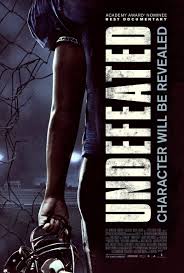Along with narratives, I like to explore a
different form of storytelling—documentaries. Netflix has been on point lately,
having a good amount of documentaries with Black subjects. So, without further
ado, here’s what I thought about three films that I’ve watched recently:
Something
From Nothing: The Art of Rap, 2012
After watching The Hip-Hop Fellow, featuring 9th Wonder, I became extremely
interested in hip-hop as an art form and social movement. So, when I saw that The Art of Rap was on Netflix, I knew
that I had to watch it. This documentary is centered on the idea that MC-ing
takes actual skill. Duh. Ice-T travels from coast to coast interviewing some of
the greatest rappers, producers, and beat-boxers in the business. Of course,
some of the language was a bit much for this church girl, but I knew what I was
getting myself into when I pressed play and found dissecting the rhymes
intellectually stimulating. I always say that rappers are some of the smartest
people out there. This film affirmed that belief through complex and thought
provoking verses. I also really dug the cinematography There were some really
beautiful skyline shots.
Although I found this film interesting and
quite enjoyable, it didn’t give much clarity about the actual process of
writing or free styling. I wish I could of learned more about the “how” as
opposed to only getting continuous introductions to the “what.” There were a
lot of old buddies reminiscing, who were great and all, but I think it could
have been improved by displaying this art through a means other than example.
Ice-T was feeling himself a little bit, constantly butting in with his own
contributions to the industry. So, if you’re looking for mad bars, [insert hip
adjective here] beats, and a trip down memory lane, this is the movie for you.
If you’re a history buff…not so much.
Venus
and Serena, 2012
My family is a huge fan of the Williams
sisters. When we’re watching a match it sounds more like a football game than
the pleasant soft roar of polite claps. Because I was born in ’95, the Venus
and Serena that I know were always fierce and fashion forward. So, when I saw
that this documentary was available, I thought it would be interesting to learn
more about the bead-wearing child prodigies that my parents were always talking
about. Venus and Serena gives pretty
good insight into the lives of these tennis stars beyond the stats and behind
the cameras.
This film
combines following the sisters during 2011 (while Venus begins dealing with her
autoimmune disease) with looking back at the origins of their stardom. I like
that there was a dual focus; however I think that it bounced back and forth
between the two a bit randomly. Better sequencing would have made this film
more captivating. That being said, Venus
and Serena was successful in making me feel like I had some sort of
personal connection with the Williams sisters. They didn’t shy away from hard
subjects like racism, death, divorce, and disease. At the same time, I was able
to see a lighter more fun side of the two, playfully bickering and laughing off
the haters. All in all, this documentary wasn’t perfect, but it gave me more
reasons to treat aces like 70-yard touchdowns.
Undefeated,
2011
In an effort to take a break from my Friday
Night Lights binge, I ever so logically decided to watch yet another high
school football film. Undefeated follows the Manassas Tigers of Memphis,
Tennessee. Quite honestly, I was extremely skeptical of this film. It looked
like it was going to be another “white savior” film where the disadvantaged
Black people succeed at doing the only thing that we are stereotypically capable
of doing—playing sports. Although Undefeated
has some of those tendencies, I still felt like it is worthy of its Academy
Award. I never found myself feeling offended.
This documentary did a fantastic job of
portraying the team members as people instead of just bodies. As such, winning
games was less important than what players were going to do when the games all
ended. Unlike a lot of inner-city documentaries, this film didn’t lump the
entire African-American community together. It does show extreme poverty and
despair, however the filmmakers seem to be commenting more on undeserved racial
disparity than some undeserved blessing from White America. It shows struggle,
but only as a means of highlighting inner strength. Sure, it’s heartwarming,
but I think that adjective misses the point. This football team accomplished
the seemingly impossible, but when it was all over, I was still kind of upset
that these kids still had to jump over the hurdles associated with poverty. In
short, I’m a fan of Undefeated and
would recommend it, even to those who don’t know the difference between a free
throw and a field goal.
Documentaries
on My List:
What
Happened, Miss Simone?
Marion
Jones: Press Pause (30 For 30)
You
Don’t Know Bo: The Legend of Bo Jackson (30 For 30)
Benji (30 For 30)
The Black Power Mixtape 1967-1975
The Black Power Mixtape 1967-1975
On
The Way to School
The
African Americans: Many Rivers to Cross
We
Could Be King
Doin’
It in the Park: Pick-Up Basketball, New York City
Crips
and Bloods: Made in America
Something
to Cheer About
American Experience: 1964
20 Feet From Stardom
20 Feet From Stardom







